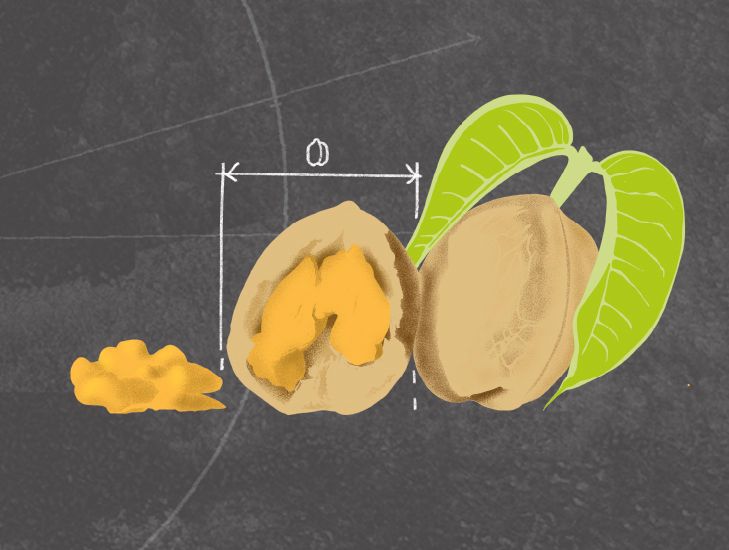
An anti-inflammatory diet is
Inflammation is the body’s natural response to injury and infection. However, experts link persistent and
Foods with anti-inflammatory properties include, but are not limited to:
herbs and spices , such as turmeric, cinnamon, ginger, garlic, pepper, and rosemary- fruit, including pineapple, papaya, mango, berries, and acerola cherry
- vegetables, such as carrots, pumpkin, green leafy vegetables, and zucchini
- peas and beans, such as pinto beans, chickpeas, lentils, and black-eyed peas
- oily fish and other omega-3 sources, including sardines, salmon, mackerel, herring, and fish oil
- dairy, such as yogurt
- whole grains, such as corn, cornmeal, and whole grain pasta, bread, and rice
According to
Although there is no well-defined anti-inflammatory diet, there are broad recommendations for foods to get more of and those to get less of to treat inflammation in the body.
Furthermore, studies show that diets not designed as anti-inflammatory have inflammation-lowering benefits, and health experts recommend them for general good health.
For instance, the
The goal of an anti-inflammatory diet is to eliminate pro-inflammatory foods and replace them with nutritionally adequate foods and herbs and spices that are high in anti-inflammation compounds, such as
For instance, avoiding refined flour, excess salt from precooked foods, and sugary beverages and increasing one’s daily intake of fruit, vegetables, and whole grains are among common recommendations.
Anti-inflammatory diets also support gut health. As many as
It is advisable to consume foods rich in prebiotics and probiotics, such as legumes and yogurt, every day.
Tips for getting started on an anti-inflammatory diet include the following:
- Replace sugar-sweetened beverages, such as sodas and concentrated juices, with plain or fruit-infused water.
- Increase your fiber intake by eating more whole grains, fruits, and vegetables daily.
- Eat fatty fish, including sardines and salmon, twice per week.
- Include into your diet more nuts, seeds, nut butter, avocado, and olive oil for healthy fats.
- Incorporate more herbs and spices.
- Sip on herbal teas, such as ginger, garlic, cinnamon, or rosemary tea.
Lower disease risk
According to the
A
Researchers suggest that the diet reduces heart disease risk by lowering inflammation in blood vessel walls and maintaining their health and resilience.
Adherence to the Mediterranean diet also has the potential to reduce the risk of
Less severe symptoms
Symptoms of chronic conditions, such as muscle pain, swollen joints, itchy skin, tiredness, and mood swings, may become debilitating or disruptive, affecting a person’s quality of life and comfort.
Research into the effects of an anti-inflammatory diet in individuals with
This means that for someone with a chronic condition, an anti-inflammatory diet may support improved symptom management and a better quality of life.
In addition,
However, instead of focusing on a single nutrient, people should follow a balanced diet rich in fiber, whole grains, fruit, vegetables, and omega-3 fats to manage fatigue.
Inconsistent findings
Anti-inflammatory diets are an emerging science with conflicting findings.
According to some
These inconsistencies between published data may leave you feeling confused about which foods are right for you. Be mindful of your allergies and consult with a registered dietitian to develop an appropriate meal plan.
Cannot cure diseases
Several health-related websites offer the “best” anti-inflammatory diets to “cure” conditions such as fibromyalgia, multiple sclerosis, and arthritis.
While anti-inflammatory diets are effective at reducing inflammation and improving symptoms, saying that they are a cure for autoimmune and chronic conditions is an overstatement.
A person should adopt an anti-inflammatory diet to support appropriate medical treatment, not to replace it.
Lifestyle habits also play a role in the development of inflammation.
Research associates
In addition to fueling your diet with anti-inflammatory foods, support lower levels of inflammation by:
- aiming for 7–9 hours of uninterrupted sleep
- exercising for
150 minutes per week, including cardio, resistance, and balance training - trying to
manage stress
Anti-inflammatory diets are rich in health-promoting antioxidants, polyphenols, and other immune-boosting compounds that lower inflammation in the body.
Replace pro-inflammatory foods — such as highly refined carbohydrates and added sugars, red meat, trans and saturated fats, and salt — with whole grains, fruit, vegetables, yogurt, herbs and spices, and healthy fats.
Although anti-inflammatory diets effectively reduce inflammation and improve disease symptoms, they are not a cure for autoimmune and chronic conditions and should be an addition to appropriate medical treatment, not a replacement.



